Intellectual Capital
Intellectual capital can be said to constitute
value creating factors not shown in traditional balance sheets, but which
are of critical importance to a company's long-term profitability.
What is IC Rating? Definition
IC Rating is a way of measuring intellectual capital
from a new perspective and with a new approach focus on the assets that in
fact decide the ability of knowledge based companies to create value for its
interest groups.

An
IC Rating provides management with a foundation for optimizing the competitiveness
of the organization by functioning as:
-
A foundation of a modern business control system with clear and measurable
goals for maximizing future profitability. This analysis can be repeated
for measuring the goal achievement;
-
A basis for improvement and change activities which can be used on both
management- and operational levels. The areas of improvement can be identified
after which decisions about changes can be made;
-
A structured image of value creating assets that can be used in market
communication (investor relations, annual reports) as well as within the
organization, where the tool creates a new basis and a new language for
internal aspects important to the business activity.
Situations that require measuring Intellectual Capital
- Valuation. When either selling or buying a company, IC Rating will give
you invaluable information on its future potential.
- Benchmarking. When you have several units which you want to compare,
either within companies or between companies, IC Rating provides a standardized
tool and terminology.
- Organizational Development. The result of an IC Rating will pinpoint
areas to develop and improve, and also allows you to measure improvements
consistently over time.
- External Reporting. There is an increasing demand for transparency in
company reporting. IC Rating complements traditional financial reporting,
and provides a comprehensive and future-oriented view of your company.
benefits of measuring Intellectual Capital
- A better understanding of non-financial assets and their importance
in the company's value creation.
- A shared language and terminology as well as a system for
managing intangibles.
- Better management of intellectual capital.
- Increased transparency and possibilities for both internal
and external reporting.
- A business recipe consists of the company's business idea and
strategy in combination with the market conditions in the chosen business
environment. One of the evaluations for strength of business recipe is for
instance how well a company differentiates itself in its chosen business
environment.
- Organizational structural capital is a result of the employees'
efforts to transfer their knowledge to the company. It is employee independent
of individuals and is effective 24 hours a day.
- Intellectual properties can be defined as packaged and protected
knowledge. Examples of intellectual properties are patents, licence agreements
and in-house developed software that create competitive advantages and temporary
monopolies.
- Processes. The process capital aims to make it possible for the
employees to increase the financial return on their knowledge and competence.
This goal is met by increasing the conditions of the human capital to focus
on its core-competence. Examples of process capital are well-developed work-processes
and methods, IT support, reusable competence and organizational effectiveness
etc.
- Human capital consists of the people working for the company.
The company only has limited control over this resource for instance through
employment contracts.
- Management is responsible for the overall development of the
intellectual capital through optimizing its usage to create value for the
company's shareholders and other stakeholders.
- Employees. The employees use their knowledge and experience to
satisfy the demands of the customers and to transfer their knowledge into
reusable structures and processes, which can be used by others in the company.
Factors that can increase control are e.g. competitive wages and a satisfactory
working environment.
- Relational structural capital. Interested parties in the business
environment of a company are the main contributors to the value of this
part of the structural capital. It consists of relationships with business
partners and other external connections that contribute to fulfill the company's
needs, and also includes elements like reputation and customer potential.
- Network. The network of a company is constituted by all networks
that are of significant importance for the future profitability of a company.
Current customers excluded. Examples of networks are recruitment-, sales-,
competence- and R&D-networks. The strength of these relationships decides
the efficiency of the networks.
- Brand is defined by the recognition and reputation in the target
group, and by how well the company has managed to differentiate itself from
the competition. This is made possible by strengthening and associating
the brand with values that in a positive way distinguishes the company.
- Customers. Except from generating revenues, the customer-base
also serves other positive functions. It can facilitate other business aspects
since customers also serve as a reference for the company's abilities e.g.
increased attraction regarding new clients and co-workers. The most important
aspect is the ability to attract and maintain customers.
- Intellectual capital. The business recipe forms the working conditions
for the other elements of intellectual capital. The business concept and
strategy are assessed separate from the different types of capital, but
the assessment nevertheless evaluates the conditions of the human- and the
structural capital in the context that the business recipe provides. The
value of a company's intellectual capital is a combination of the strength
of the business recipe and the efficiency of the human- and structural capital.
|
Forum discussions about Intellectual Capital.

|
Cost of Intellectual Capital
I recently published a paper with Sigse on intellectual capital and the true return on investment assessment for an individual in absolute terms called 'Net Worth of an Employee'.
I proposed central...
 5  2 comments |

|
Psychological Capital
I am a PhD student in management (organizational behavior) and at the moment I'm looking for a good research topic for my thesis.
I am interested in positive psychological capital or business ethics ...
 4  2 comments |

|
Measuring IC: Business IQ
In 2004 Egil Sandvik published the book ”Business IQ – strategy, leadership and top-line measures that make knowledge businesses smarter”. The book describes the leadership and management system Busin...
 4 |
|
|
|
Courses about Intellectual Capital.
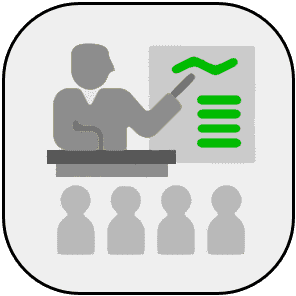
Beginners Course
|
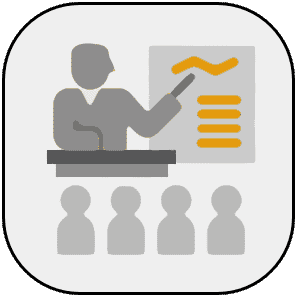
Advanced Course
|
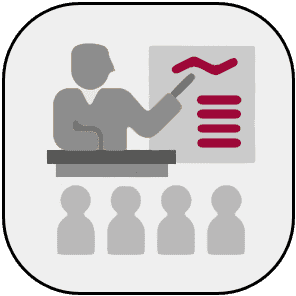
Course for Experts
|
|
|
|
The best, top-rated topics about Intellectual Capital. Here you will find the most valuable ideas and practical suggestions.
|
|
|
Advanced insights about Intellectual Capital. Here you will find professional advices by experts.

Consultancy Tips
|

Teaching Tips
|

Practical Implementation Tips
|
|
|
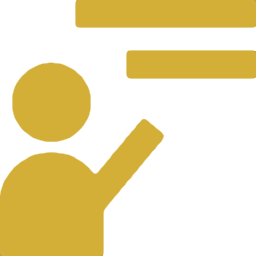
|
How to Measure Intangible Assets? Measuring Intangible Assets, Best Practices, Intangible Assets Indicators
Karl-Erik Sveiby suggests following indicators to measure intangible assets with the help of the IAM:
1. EXTERNAL STRUC...
|

|
Intellectual Capital Management Managing Intellectual Capital
Although most executives agree that intellectual capital is critical to the continued success of their businesses, their...
|

|
Measuring the Immeasurable: Finding the Value of Intangibles Measuring Intangible Assets, Best Practices, Intangible Assets Indicators
In his book "How to Measure Anything: Finding the Value of Intangibles in Business", Douglas W. Hubbard argues that what...
|

|
IC Formula? Numerical IC Estimation
So far the most widespread formula to estimate numerically Intellectual Capital comes again from Roos and Roos. The auth...
|

|
Skandia IC Vision IC Valuation
According to Skandia, a big Insurance and Financial Service Company, IC is composed by Human Capital and Structural Capi...
|
|
|
|
Various sources of information regarding Intellectual Capital. Here you will find powerpoints, videos, news, etc. to use in your own lectures and workshops.
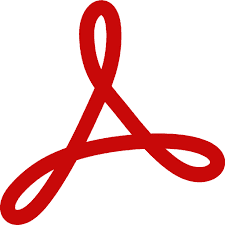
|
The Need of Decision-makers for IC Information A User Perspective
The field of intellectual capital (IC) has witnessed rapid growth in recent times, with a range of IC measurement and re...
|

|
Management Accounting of Intangible Assets Intangible Assets, Intellectual Capital Measurement
This presentation provides information about intangible assets and the effective management/accounting of these assets. ...
|

|
Knowledge Management, Organizational Learning and Intellectual Capital Intellectual Capital, Knowledge Management, Organizational Learning
Presentation about organizational knowledge, learning and intellectual capital. The presentation includes the following ...
|

|
Intellectual Capital Taxanomies Categorization, Reporting on IC
This is a useful short overview of some more Intellectual Capital Taxanomies I found in a recent OECD report....
|

|
Three Levels of Knowledge Management Initial Understanding Knowledge Management, Organizational Learning
According to Jury (2007), knowledge management can be categorized into three different levels, and organized in a pyrami...
|

|
Competitive Intelligence and Intellectual Property Competitive Intelligence, Intellectual Property
This presentation elaborates on competitive intelligence especially by relating it to intellectual property. The present...
|

|
Managing Intangible Assets in Higher Education Intellectual Capital, Higher Education, Higher Education
1. Agenda
2. Growing Importance of Intangible Assets
3. Necessity to Actively Manage IPR
4. Research on Intangible As...
|
|
|
|
Useful tools regarding Intellectual Capital.

News
|

Videos
|

Presentations
|
| |

Books
|

Academic
|

More
|
|
|
|
Compare with: Intangible Assets Monitor
| Balanced Scorecard
| Strategy
Maps |
Organic Organization
| Organizational Learning
| Value Profit Chain
| Knowledge Management
(Collison & Parcell)
Return to Management Hub: Change & Organization | Decision-making & Valuation |
Human Resources | Knowledge & Intangibles
More Management Methods, Models and Theory
|
|
|














